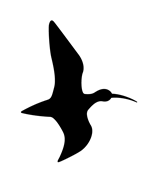
> Together-telling as a means to share cultural perspectives in ESD
Academic Quarter | Akademisk kvarter
Vol 26 (2023); On Materiality, Re-storying and Collaborative Future Making
The volume explores the intersection of methodologies between materiality and collaborative future making. Re-storying refers to the process of critically examining hegemonic narratives, and reconstructing stories that have been marginalized, erased, or silenced. Materiality and storytelling (...) incline the use of tangible objects and physical materials to convey and reconfigure stories and narratives. (...) The articles show this process of collective imagination and exploration of alternative futures on the backdrop of the existing.
Eva Ritter (2023) Together-telling as a means to share cultural perspectives in Education for Sustainable Development: A study from Greenland
Education for Sustainable Development (ESD) is considered one of the paths leading towards a sustainable future. However, work in ESD must be responsive to the local context and culture in order to be accepted by the people involved. This article examines how together-telling can be used as a means for collaborative future-making in ESD. By reflecting on cultural differences in nature relationships and manners of communication, together-telling is suggested as an approach to give space to voices other than those dominating the global sustainability narratives. The focus is on a respectful way of bringing together and learning from different perspectives of Western-European and Arctic Indigenous cultures in the context of sustainability. A study from Greenland is used as an example from an Indigenous culture in Northern Europe.
Keywords: Education for Sustainable Development, Greenland, Indigenous knowledge, together-telling
Published 24-12-2023
Online available (open access):

Citation/Eksport:
Ritter, Eva. 2023. “Together-Telling As a Means to Share Cultural Perspectives in Education for Sustainable Development: A Study from Greenland”. Academic Quarter | Akademisk Kvarter, nr. 26 (december): 96-109. https://doi.org/10.54337/academicquarter.vi26.8252.

